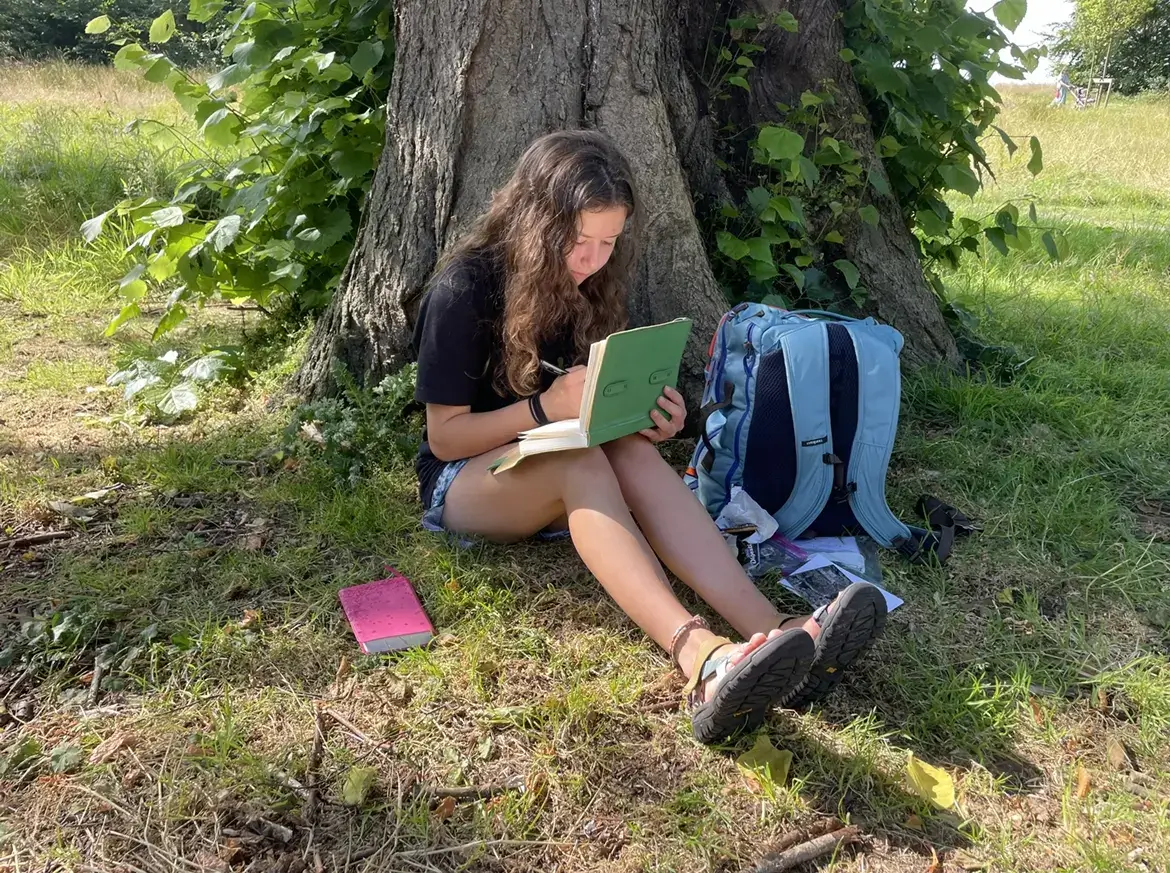Surviving Reverse Culture Shock
Kristen McHargue

What could be easier than going home? After all, you grew up in that culture, speak the language(s), understand how the system works, are familiar with how to cope with daily living, and have a ready-made support group. When you were homesick you dreamed how great it would be to be back in a comfortable and familiar place surrounded by family and friends. However, the reality is that returning home after a significant overseas missions experience is not without its stresses. —Alumnus, 2002
Phases of Reverse Culture Shock
The Honeymoon Phase
Upon returning, your son or daughter can expect to experience an initial stage of euphoria and excitement. It will be a relief to come back, and invigorating to be surrounded by the comforts of home and people who are thrilled to see them. It won’t be long, however, before they realize that both they and their home environment have changed, and the honeymoon phase will come to an end.
The Crisis Phase
The symptoms they experience during the crisis phase may parallel those they went through abroad; frustration, dejection, irritability and loneliness are just some of the emotions they may face. Many factors contribute to this most difficult phase of re-entry:
Surprise
One element of reverse culture shock that is different from the initial culture shock of traveling abroad is the element of surprise. When venturing to a new place with unfamiliar customs, language, and norms, most people expect to face some adjustment challenges. Home, on the other hand, is the place you know better than anywhere else, where you are comfortable, and where you fit in naturally. Since there is no apparent reason to expect culture shock upon re-entry, the crisis phase comes as a shock to those who are unaware of reverse culture shock.
Realities of home
Home may not be what they expected it to be. While experiencing culture shock and homesickness abroad, they may have idealized and romanticized their home environment. Upon returning, the imperfections and annoyances that they had forgotten about will no longer be invisible, which can be disconcerting.
After [time] away, you think about what life is like in the States and how things work here–you build up a lot of expectations and slightly flawed memories and you’re usually wrong, because your expectations are based on sort of a synthesized middle ground between the two cultures. — Amy Portnoy, International Media Consultant
Reverse Homesickness
While abroad, they will have developed a routine, adapted to a new way of living, and formed significant friendships. Leaving this behind will be difficult, especially if they don’t know when or if they will return. Also, our students travel in groups of three to five and always go to town with their discipleship groups. They spend 24 hours a day with peers and people experiencing the same thing. Many students find it lonely to return to their normal routine of being alone, plugged in online and miss the face to face relational time.
Changes In You And Others
Life doesn’t stop while they’re away, and things at home will be different when they return. The changes in their friends and environment may be subtle, or they may reveal themselves only under certain circumstances, which are usually unpredictable and therefore unsettling. Because the home they left is not quite the home they are returning to, they may find themselves confused and anxious.
They may also begin to view friends and family differently. It can be frustrating to find that others don’t think outside the “bubble” of their college, work, or community environment. Friends’ reactions to their return may also be disillusioning, particularly if people seem disinterested in their missions experience abroad.
I had a very hard time readjusting to the US. I had changed so much and seen so many things, and I had a hard time relating to others and realizing that they had also changed during the time I was away. I was surprised that my friends didn’t really want to spend much time looking at my pictures and listening to my stories. God also asked me to drop some activities that had always “defined” me. This was hard for my friends and parents to understand. –Royal Servants alumnus, 2004
On the other hand, many friends will be genuinely excited about listening to them recount their trip, but it will be difficult for your son or daughter to fully articulate their experiences.
‘Most people at home can’t relate to these experiences,’ said a Royal Servants student from 2005. ‘I spent a month living in Nepal. I was surrounded by children who did not have food to eat and served lepers who were missing part of their face and hands. I went in stores that had four things on the shelf for a whole village. It gives you a feeling you can’t explain to someone who’s never done it and those feelings are yours alone. But that also means it’s difficult to relate the stories of your trip in a meaningful way. It’s also overwhelming to come back to my room and home filled with so many things!’
Blindness To Culture Shock
When you travel abroad, locals recognize you as a foreigner. People are understanding of your disorientation, and are quick to offer help. At home, on the other hand, they will be expected to be a fully functioning member of society. Because they look like they fit in, people will see no reason to reach out to them, and because reverse culture shock is not a well-recognized phenomenon, others will likely be less sympathetic to their adjustment needs.
The best thing you can do as a parent is process with your student. Listen and affirm what God is doing in their life and help them walk through the phases. If you feel your student is entering into something more serious, please don’t hesitate to call us or seek help from a local counselor. We share this with you, not to frighten you, but, to share ways you can walk with your student as they re-enter American life.
A Few Practical Ideas
Create A Missions Experience
Schedule a night to invite their friends over for a missions experience. If your child was on the China mission trip, serve Chinese food. Make a display of some of their favorite photos and memories of the trip. Pull out the bounty from overseas!
Give Your Student Space To Process
Parents have told us that it takes some students a while for them to adjust to planning for the fall, school activities and even getting together with friends. Don’t panic if they are re-thinking their priorities and schedules. Talk with them about the pros and cons of their decisions.
A Mentor Can Help
Connect them with a mentor. If you know other alumni, call them in for this!
Connect With The Team
Find ways to connect them to their team: phone, email, Facebook, reunions in your basement…
Local Service
Find local ways to serve the international community. Call local colleges or work with internationals at your student’s school.
Pray
Pray for the country your student lived in this summer. Think of creative ways to support missionaries serving there, maybe support a micro-business if the country has economic needs.
Be Creative…
…and listen as your student shares their passion and love for their home country for the summer!
In closing, I wanted to share my personal perspective on this subject. I have mentored students that have served with Royal Servants since 1992, I served on the EuroQuest team in 1997 (and experienced reverse culture shock as an adult!), and I sent my own child in 2003 and 2008. Through all of these experiences, I have learned many things about helping myself and others throughout this transition!
Pray about how to help your son or daughter remember the truth God pressed into their life this summer and give them space to grow into what God is asking them to become. Don’t give up if your child struggles and support them if God is asking them to take huge stands for Him. I can’t tell you how many times God has asked students to do bold and amazing things for Him that frankly scared most adults! God is at work and He will give you wisdom as you guide your students in the coming months.
I will be praying, as I do every fall, for the students as they return to school, re-kindle friendships and walk forward. God is good and cares deeply about all of these things. Don’t hesitate to contact me if you have questions!
Originally Published August 30, 2010
Want to stay informed on all our mission trips? Be sure to subscribe and follow us on Facebook, Instagram, and Youtube to never miss an update.





